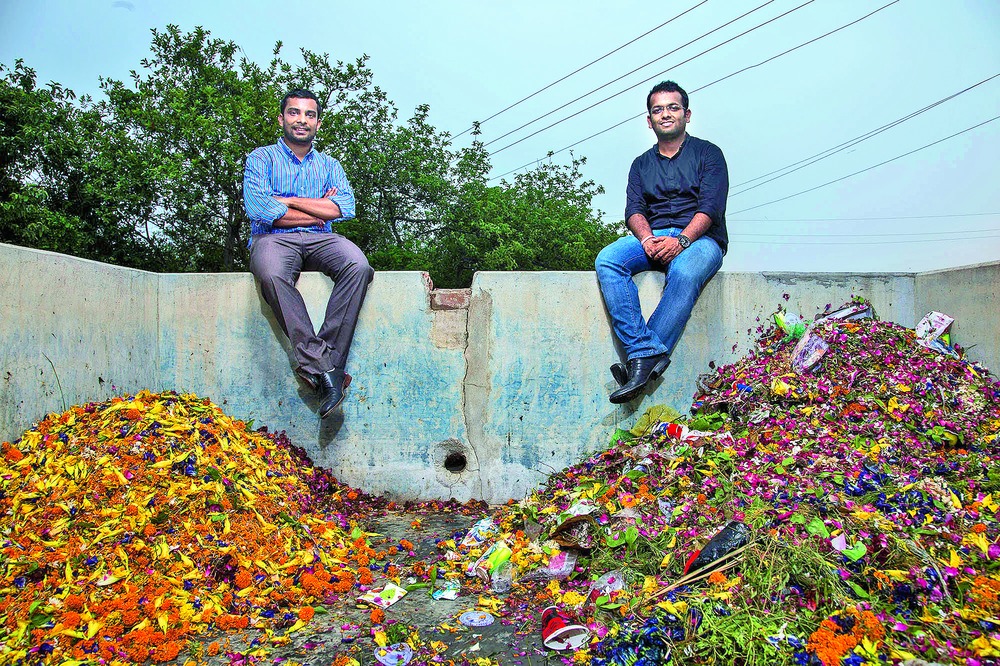
Feb. 5: Ever wondered what happens to the flowers you offer at temples? IIT passouts Ankit Agarwal and Karan Rastogi did and also devised a way to protect rivers from the petals that are dumped in water.
More than 800,000 tonnes of flowers are dumped into the Ganga every year after they've been used in temples, making flower pollution among the greatest threats to the river.
HelpUsGreen, a social enterprise set up in Kanpur in 2015 by Ankit and Karan, collects 1.5 tonnes of floral waste from nearly 30 temples every day and uses them to make fertilisers and incense sticks. The initiative won the duo the top honour at Empresario 2017 - the annual global business model competition organised by the entrepreneurship cell of IIT Kharagpur - in Calcutta on Saturday.
Ankit, 27, started his career as an automation engineer with a US technology company in Pune. "After working really hard for a couple of years, I had a patent to my credit. I thought I would be overwhelmed but I wasn't. That was when I realised I wanted something more from life," he told Metro at the Nasscom Warehouse in Salt Lake, the venue for the competition.
Not only does HelpUsGreen protect the Ganga, it provides livelihood to more than 100 people.
The green efforts don't stop there. Products manufactured by the group come in packages infused with tulsi seed cellulose. Once the product has been used, the paper pulp can be added to the soil and watered to have a plant sprouting from it. The project won the first place in the social track of the business meet.
Renata Saha, 20, a student of NIT Durgapur, was the runner-up for Mothercare - intended to provide pregnancy detection kits to rural women and medical assistance to would-be moms.
There were winners in the product and services track as well. Less than 20 of the 2,500-odd entries made it to the final in Calcutta. A panel of judges heard the pitches of each team and chose the winners, who received cash prizes.










